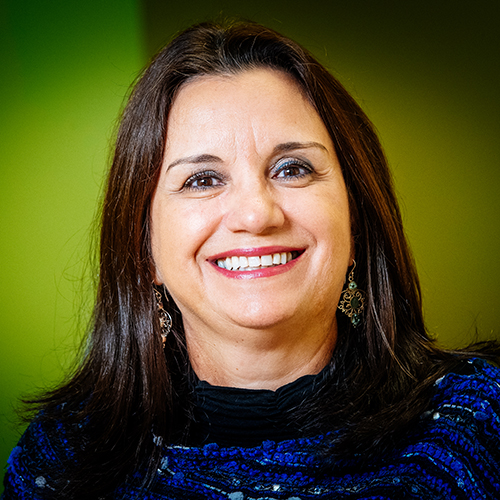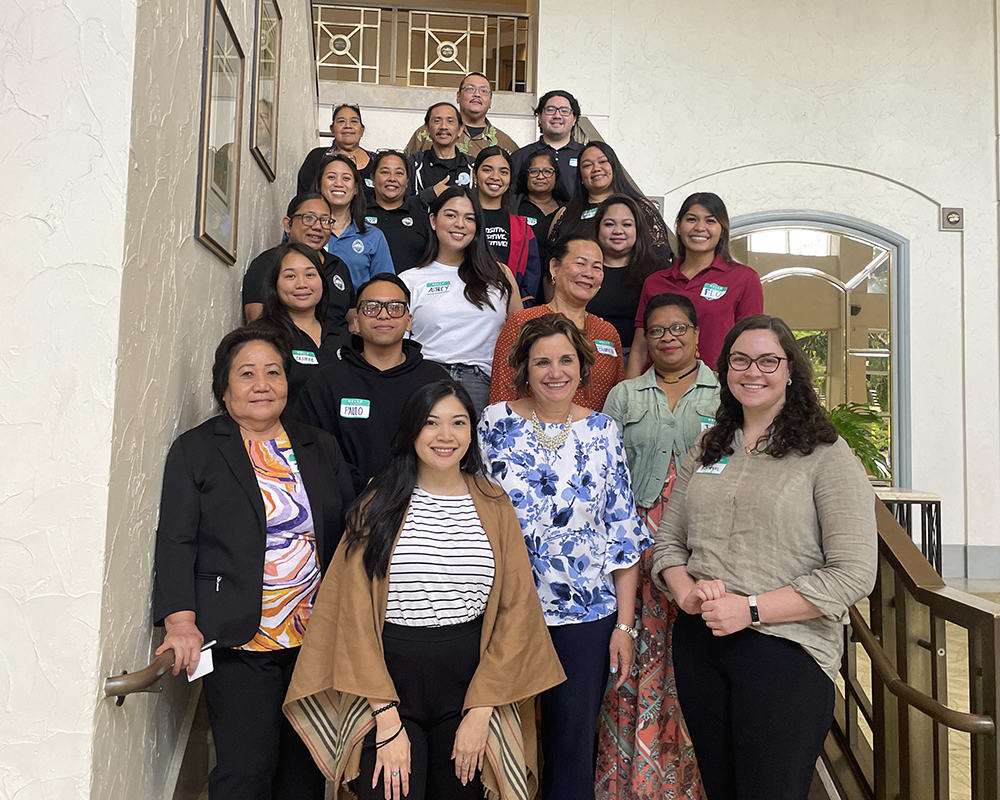 Isabel Scarinci, Ph.D., MPH, is the vice chair for Global and Rural Health in the Department of Obstetrics and Gynecology. Her work centers on underserved populations, with a primary focus on cancer prevention and control among Black/African-Americans and Latinos.
Isabel Scarinci, Ph.D., MPH, is the vice chair for Global and Rural Health in the Department of Obstetrics and Gynecology. Her work centers on underserved populations, with a primary focus on cancer prevention and control among Black/African-Americans and Latinos.
“My work focuses on getting technologies that have proven to be evidence-based (e.g., self-sampling for human papillomavirus (HPV) testing, HPV vaccination) to populations experiencing a high burden of disease,” said Scarinci. “I focus on developing, implementing, and evaluating evidence-based strategies to get these advances to the community.”
Scarinci’s background is in clinical psychology. Most clinical psychologists work at the individual level to promote behavior change, mostly in treatment. When she started her career, very few clinical psychologists worked in population health and focused on behavior change at the population level. She saw this gap as an opportunity.
We sat down with Dr. Scarinci to gain insight into her life and work in global health.
Q: What led you to your focus area?
I have integrated my training and background in clinical psychology and public health to promote behavior change at the population level, focusing on cancer prevention and control. Most of my work focuses on cervical cancer prevention and control and tobacco control. I also had training and background in the Empowerment Model, which is the base for what became Community-Based Participatory Research. My work has focused on community-engaged research toward the development of theory-informed, culturally relevant interventions with a primary focus on Black/African-Americans, Latinos, and rural residents in the U.S. as well as underserved populations in low- and middle-income countries.
 Isabel Scarinci, Ph.D., MPHQ: What are the big issues in your focus area?
Isabel Scarinci, Ph.D., MPHQ: What are the big issues in your focus area?
I have been fortunate to work on a type of cancer that can be totally prevented – cervical cancer. We have the tools, HPV vaccination and screening, to prevent this cancer and the evidence-based strategies to get these tools in the hands of populations experiencing a high burden of disease. I think the biggest issue right now is the mobilization of the government, other organizations, and civil society in disseminating these strategies to eliminate cervical cancer as a public health problem. We already started with Alabama being the first state in the U.S. to launch a statewide action plan to eliminate cervical cancer as a public health problem with the engagement of an academic center (UAB), government (Alabama Department of Public Health), and civic and non-profit organizations (Rotary Club of Birmingham, TogetHER for Health, American Cancer Society). We have also done similar work in Sri Lanka using this integrated and participatory approach.
Q: How did you connect with UAB?
I came to UAB as a visiting scholar in 1989 to get more training in chronic pain as one of the top experts in the field, Dr. Lawrence Bradley, was at UAB. I owe a lot of my accomplishments to his mentorship and encouragement and other mentors’ support during my career.
Q: How did you connect with your global partners?
Different partners, different strategies. Some I took the initiative, and some contacted me for collaborations.
Q: What is innovative about your work?
The engagement of all stakeholders in the process, which has major implications for sustainability. Another innovative component of my work is the capacity building of Community Health Workers in different settings to promote behavior change.
 Dr. Scarinci with Community Health Workers and volunteers in GuamQ: What has been the impact of your work?
Dr. Scarinci with Community Health Workers and volunteers in GuamQ: What has been the impact of your work?
We were one of the first groups to explore self-sampling for HPV testing, where women can collect their own sampling for HPV testing in the comfort of their homes. This work has expanded tremendously. For instance, based on a pilot co-funded by the National Institutes of Health (NIH) and the Brazilian government, our colleagues in Brazil have obtained funding from the Brazilian government to implement a randomized trial including all five regions of the country on self-sampling for HPV testing. If successful, the public health system is considering making self-sampling for HPV testing part of the standard of care for populations who experience difficulties accessing the health care system (e.g., rural populations and populations living in remote areas with difficult access).
Another example is our work in tobacco cessation. We are one of the first groups to develop, implement, and evaluate a tobacco cessation program tailored to the needs and wants of women. We are now turning this effective program into an app so more women can access it.
Q: What are your goals for the future of your research/initiatives? What do you hope to achieve?
I plan to continue making sure underserved populations get access to the research advances that can prevent cancer or detect cancer early, particularly among women. I will continue doing so through bidirectional partnerships. I plan to continue training and mentoring the next generation of researchers and be a compassionate leader.
Dr. Scarinci has several opportunities for student involvement, research collaborations, and social mobilization. She is open to collaborating on new projects and considering new ideas in her current work or related topics. If you are interested in collaborating with Dr. Scarinci or would like your work highlighted by the Mary Heersink Institute for Global Health, reach out to